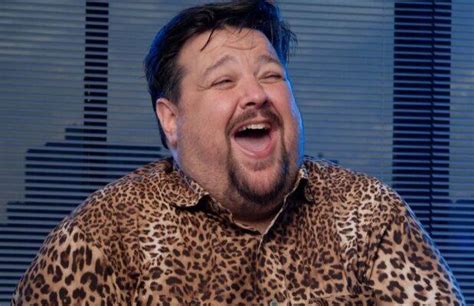A Quote by Mike Patton
The creative process for a musician is very different than for a filmmaker. I have an idea and I can pretty much execute it. As old as I am now and as long as I've been doing it, I can pretty much get it done in a week. While a filmmaker has a great idea that should be out tomorrow, but he has to go through this process of getting financing, then selling it, then casting. I've always been in awe of filmmakers and their patience in realizing their vision because I could never do that.
Quote Topics
Always
Am
Awe
Because
Been
Casting
Could
Creative
Creative Process
Different
Doing
Done
Execute
Filmmaker
Financing
Get
Get It Done
Getting
Go
Great
Great Idea
Idea
Long
Much
Musician
Never
Now
Old
Out
Patience
Pretty
Process
Realizing
Selling
Should
Than
Then
Through
Tomorrow
Very
Vision
Week
While
Related Quotes
It was a very, very intense and long casting process [for The Killing] because we really had to find the right people who could carry the weight of this story, who had the chops and who had the spirit, where they could bring in so much of their own selves to these characters. So, the casting process took many months.
I feel like I have more experience with publishing humor than pretty much any editor I'm going to be dealing with so sometimes I'll get a little bit nuts if I write something I know is good a certain way, and some editor because of some restriction he has and wants to change it that I know is going to make it less funny that'll piss me off and then I'm inclined to go, "Well, hey I've been doing this a long time, maybe you should..." That doesn't happen that often, but I'm more likely to say that now than I would have been a long time ago. Because dammit, I'm infallible!
Separate out the creative act from the act of editing and execution. Make it a two-step process. First, let ideas flow and encourage EVERY idea to make it to the whiteboard. Don't criticize, judge, edit, budget, or worry. An idea on the wall can't hurt anyone, so let them rip without restriction. After any and all ideas have the opportunity to "come out to play", only then should you apply your analytical and logical side to the effort. Don't mix the creative process with the editing process or you'll kill your ideas before they even get a fighting chance.
I'd say, 90 percent of the time, I get an idea, like, within 10 seconds of somebody telling me what their whole thing is about. And usually that flash of an idea, it's what I always go with. It might change slightly, but in general, that's pretty much it. To get me to change the entire idea is pretty tough.
Wow, I wish I could have done something like that.” That’s the thing, with other filmmakers, if I like them I just feel admiration. And yes, I usually say, “I wish I could have been part of that creative process,” because the films I admire like that are so specific that I know the creative process is also so specific, it’s nothing you could just imitate.
I try to get my subconscious to puke out as much stuff as I can because I'm really not judging myself while making music. If I crave a frequency in the mid, I'll just drag in a sound and try to mold it into what feels right. It happens very quickly. And if I've been making a piece of music for five hours and it sucks, I'll just throw it away. There has to be an entry point to learn about myself, or an idea I've never tried, because then I can try on a new skin and see the world through a different perspective. If I have that spark, then I'll save the file.
I usually try to connect with young filmmakers over the phone so I can hear them and just pick their brain as to why they want to tell the story. And usually, I'm on board. I go, "Yeah, I'd love to help. And I just need to know why you want to do this,' and it's usually an easy process because a filmmaker usually reveals his or her heart in telling the story. And that's why I'm pretty much of a softy when it comes to helping along the young ones along the way.
My agent in London told me, after Never Let Me Go, because I loved doing that so much, "If you're on a lucky streak and you're doing well, you should only take a part, if you can't bear the idea of anyone else doing it." That's been the case since then, with Drive and Shame and the play (The Seagull), and the stuff that's going on, like Gatsby. I would have been devastated, if I hadn't gotten those jobs.
On stage you never watch yourself. You just experience it, and then you go home, and you feel pretty good if you gave a pretty good performance or crappy if you didn't. But in TV and film, you actually have to experience it while you're doing it, and then you have to watch it. And then when you're watching it, you watch it with a different sensibility than how you experienced it.


































